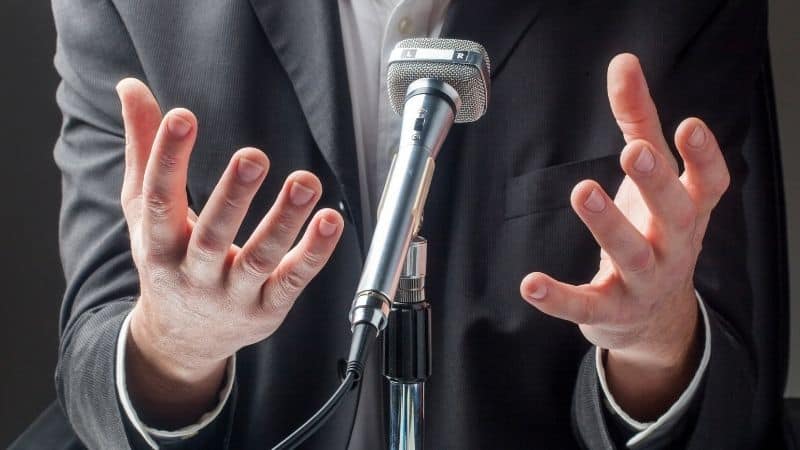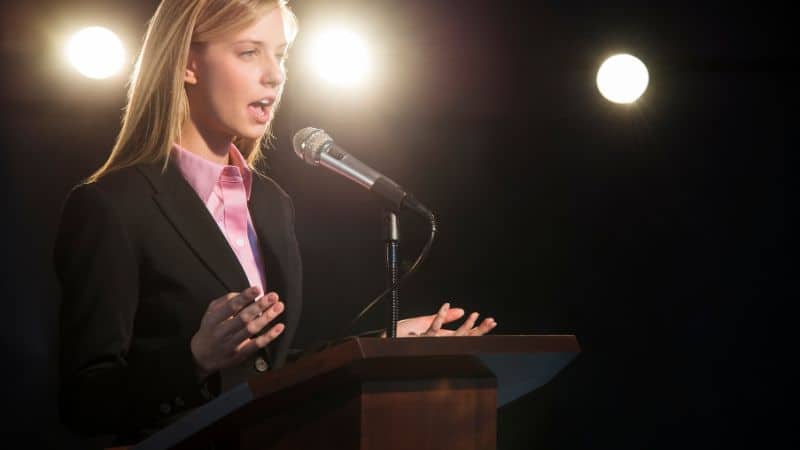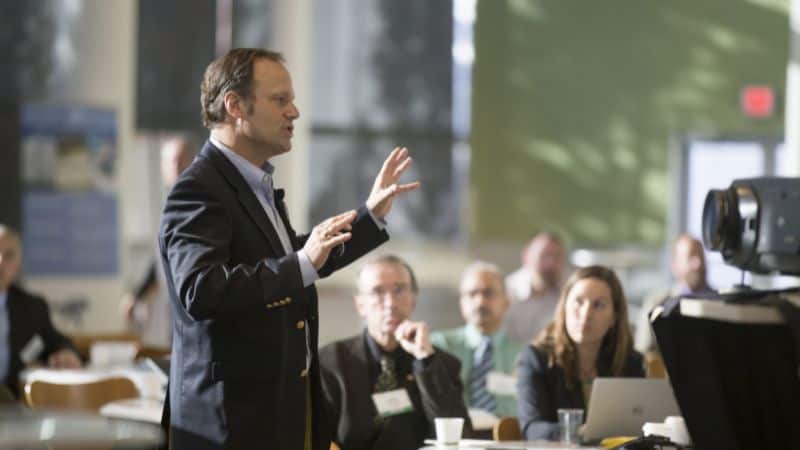Micheal Port’s book, Steal the Show, offers excellent ideas for both beginner and expert speakers. I was listening to the audiobook version of Steal the Show some days ago. I realized that many of the ideas he shared worked for me while I was starting in my professional speaking career.
I’ve been following Port after reading How to Book Yourself Solid. It is filled with excellent techniques and good ideas. But there were too many that one gets overwhelmed with the many things to do to start a speaking career. It is good that I found Dan Sullivan, the strategic coach, around the same time.
I am writing this NOT to say that Port is wrong. No, he has his version of how to help you become successful. You can follow him if his style will work for you too. Frankly, I agree with many things he said about public speaking and performance.
Whatever I read from books, I always verify through experience.
Public speaking is a performance.
Many public speaking gurus preach that public speaking is a performance. They want you to shine. Sometimes, they want you to steal the show.
When I was new to Toastmasters, I was often reminded that speaking is a moment to shine. It does not matter what your role is. You can shine when you do the opening prayer, pledge of allegiance, opening remarks, table topics, prepared speeches, and evaluation.
The pressure is high when your “mentors” tell you to shine every time.
So, when I was beginning my speaking career, I intended to shine. I wanted to steal the show from those who have been speaking for many years. I thought that I had to do this since beginner speakers do not always get recognition and respect.
I was once hired to join a group of trainers for Training the Trainers which was held in Davao. We stayed at Eden Garden Resort for 15 days. But never once I was asked to deliver a speech though I got paid 4500 pesos per day. The older speakers did all the speaking (although I found them wanting in substance.)
Then, I was also invited to join a group that trained school principals on leadership and execution. For the first three batches, I was only asked to watch. I got paid 7500 pesos each day for watching the older trainers. It was during the 4th batch when I was given a 10-minute speaking opportunity to talk about vision.
It was my moment to shine. I stole the whole three-day event by delivering a 10-minute speech. The school superintendent who saw me speak told the team to give me more time. I stole the show.
The team did not like it.
Though I was with the team for six months, they eventually had to let me go. The team leader said that she did not like it when participants compare speakers. I was stealing the show from them.
Public speaking is a performance, but it is more than that.
Do not steal the show.
Professional jealousy was one reason why they had to let me go. It was when I was given the time to handle alone one group of participants that the organizer started to get complaints against me. I got almost perfect evaluations from the participants, but the other trainers were not comfortable with the comparisons.
I told them that I was doing my best for the principles. That was the good part, and that is true. But I did not realize that I was also trying to shine.
Though I was not thinking of stealing the show, that’s what I was doing too. And it is not a good for me and for others. They were trying hard to steal the show too, though we were teaching in three separate classrooms.
It was bad for the team. It was not good for the audience.
Great leadership isn’t an event—it’s a habit. Get actionable leadership habits every Monday and Thursday.
The audience is the star of the show.
When you are the speaker, the spotlight, for a moment, is on you. But to become effective, you do not have to keep the spotlight on you. You do it longer than necessary, and you will find it difficult to see your audience.
Some years ago, I got invited to speak before 1200 barangay officials. As is often the case, I first chose to sit at the back, the farthest end of the coliseum.
From where I was, I noticed that people weren’t listening. And the speakers were not concerned about them. On the stage, each speaker greets the dignitaries, and they mention each name. Then, they say a little thing about each as if that’s all we need to hear.
Most of them went beyond their allocated time. Each was given 10 minutes to speak, and I, the guest speaker, was given an hour.
I was scheduled to speak by 10.30 am, and the emcee called my introducer on the stage 15 minutes before noon. And he, too, had many things to say.
By the time I started speaking, more than half the audience members had not yet returned. As each government official talked about themselves, the barangay officials began leaving earlier.
But I knew that they’d be back by lunchtime.
If only these politicians know the one secret that great politicians know. This is one secret that great speakers also know. Keep this in mind, and you will do well when you speak to ten or ten thousand.
The speaker isn’t the leading actor, the hero.
It is tempting for amateur speakers to believe that the event revolves around them because they tell their stories.
That moment of sharing their stories is the moment to shine. As I have mentioned, I got that advice too from my mentor in Toastmasters. They are good people.
What’s the use of research and rehearsals if you are just a supporting actor?
There is nothing wrong with being a supporting actor. However, supporting actors have to justify their roles.
You mentor from the stage.
Your supporting actor’s role is to mentor the hero.
You speak because you want the hero to learn from you. They are facing struggles. You don’t deliver a speech because you have struggles; you speak because you have surpassed them.
You know that your experiences and the solutions you have learned can help them. You want to encourage and enable them. Who is the hero?
The hero is the individual member of your audience.
They are on a journey. The spotlight is on you because members of your audience need your wisdom. Everything you say or do must support the hero. When you go down from that stage, the hero will face their demons alone.
As a mentor, you can help your audience have courage. In addition, your speech may help them find new ways.
Your speech can be a catalyst for change. A catalyst speeds up evolution. That’s what you do as a speaker. You’ll give the hero extra courage or a new way of thinking.
But the hero, not you, will create a better future for themselves.
“Steal the show.”
I heard this advice from well-intentioned people. But don’t commit the same mistake.
Stealing the show may not kill your hero, but you rob them of growth opportunities. At the very least, you are wasting their time.
I don’t want to steal the show from everyone, especially the audience.
I promised the audience that most people would be back in less than five minutes when I started speaking. Then, I told them to start clapping because I share the CLAP behaviors of good leaders.
I also requested to turn the spotlight towards the entrance. The audience kept clapping as barangay officials entered the coliseum again.











